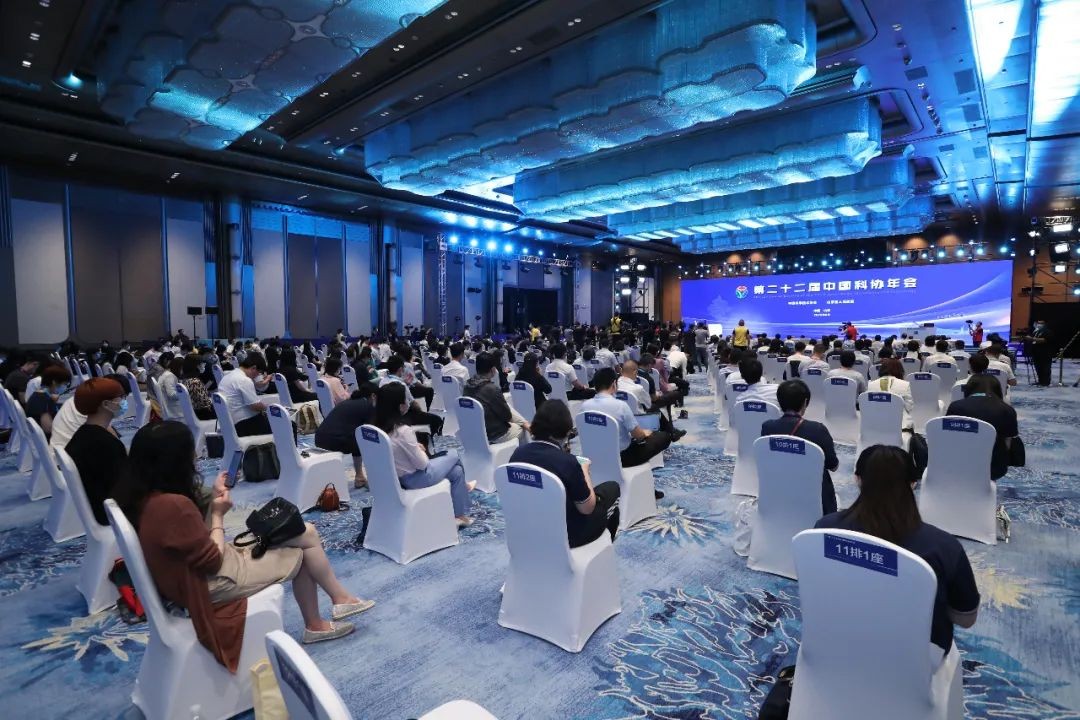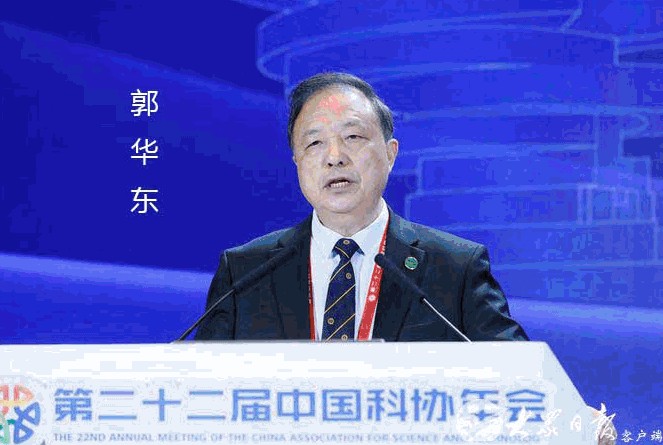“Big Earth Data Drives Sustainable Development of China and Beyond”, Prof. GUO Huadong Makes Speech at China Association for Science and Technology’s Annual Meeting
The 22nd Annual Meeting of the China Association for Science and Technology (CAST) was held in Qingdao, Shandong Province on August 14, 2020 with the theme "Innovation-driven reform and opening-up: Technology Fuels Cooperation and Development." Prof. GUO Huadong, Chief Scientist of the Big Earth Data Science Engineering Program (CASEarth) and a member of United Nations 10-Member Group to support Technology Facilitation Mechanism (TFM) for Sustainable Development Goals (SDGs), was invited to make a keynote speech at this high-level event, elaborating the role of Big Earth Data for sustainable development within China and beyond.
In his speech Prof. Guo emphasized the close link between S&T innovation and sustainable development and highlighted the findings presented in the report "Big Earth Data in Support of Sustainable Development Goals (SDGs)” which was released by Chinese government at the 74th session of UN General Assembly last September, and was drafted by Prof. Guo and his team at CASEarth.
Prof. Guo underlined the important role of Big Earth Data as a new frontier of Earth science, and its significant role in promoting in-depth development of the field of Earth science and major scientific discoveries. He introduced the CASEarth launched by the Chinese Academy of Sciences in 2018 with the aim to establish high-level Big Earth Data infrastructure to facilitate innovative research in the field of Earth science and to develop an advanced Big Earth Data Platform as a decision-making support system. CASEarth supports fundamental and applied research through fostering science programs, including Digital Belt and Road, Beautiful China, Biodiversity and Ecological Security, 3D Information Ocean, and Spatiotemporal Three-pole Environments, leading to the development an International Science Center for Big Earth Data.
In his speech, Prof. Guo presented some case studies on uses of Big Earth Data for monitoring urban development, resources and environment, and ecosystem along the Belt and Road region, and pointed out that Big Earth Data can support SDGs in three major ways, by filling data gaps, creating new methodologies and models for SDGs evaluation, and monitoring the progress of SDG indicators
Prof. Guo. highlighted the progress of CASEarth, mentioning that a spatial information service system has been built, which consists of a big data cloud service platform and a data sharing platform, capable of storing, updating and sharing huge amounts of data to users in China and abroad. He also mentioned that the CASEarth satellite project is well underway, which is designed to fill the data gaps that have thwarted the implementation of SDGs along the Belt and Road region and to monitor and evaluate SDG indicators of the region.
Prof Guo concluded that China has stepped into a new phase featuring high-quality development fueled by digital transformation. However, the global prospect of sustainable development has dimmed due to the COVID-19 pandemic. On the eve of the 75th session of UN General Assembly, the innovation-led development is critical for a bright prospect of achieving UN 2030 agenda for SDGs.
CAST is the largest non-governmental organization of scientific and technological professionals in China, serving as a bridge that links the Chinese government to the country's science and technology community. Through its 210 national member societies and local branches all over the country, CAST maintains close ties with millions of Chinese scientists, engineers and other professionals working in the fields of science and technology.

A scene of the opening ceremony.

Prof. GUO Huadong makes a keynote speech at the event.



News & Events